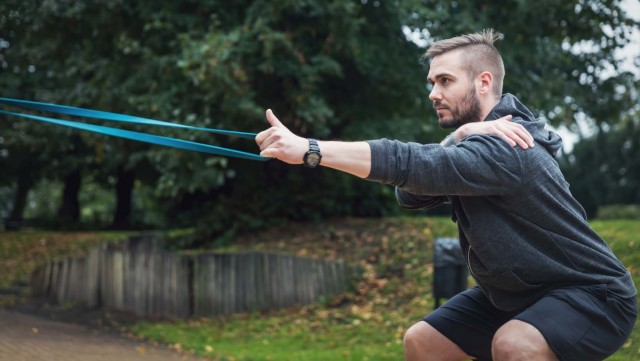SmartPlan Blog
Utilizing 3 Categories to Manage Your Life
So much to do, so little time
There's no denying you juggle a lot on the day to day. Since the pandemic this may have increased, especially if you are a parent. A year later and things still have not gone completely back normal, but not everything is bad. Regardless things might seem overwhelming at times, you may think to yourself "how will I get it all done" or "how will I fit it all in?" I know because I have the same thoughts. Do you ever feel like you're going in a million different directions? I can relate. Recently, I was reading an article about a professional athlete's diet and fitness routine. I started to notice something I had recently learned and it was showing up all over this article. Is this a winning formula?
In the article, this athlete's success is attributed to his incredible drive and his meticulous approach to everything he does. The article goes on to detail his diet, fitness, and daily routine. Why? Is there something we can learn and follow? How is he so successful? You may not have dreams of being an NFL quarterback, but you likely have one area of your life that you long to be successful in: school, business, or even your family. The author used words like drive and meticulous to describe this player. Does he have this special gene, the "Drive Gene" that the rest of us just don't have?
What if I don't have the same drive? Can I still be wildly successful? What if I'm not meticulous? Do I even have a shot? I propose that it's not that he is driven, nor meticulous. I worked closely with a Personal and Business Growth and Development organization and while in recent training I discovered something new. As I looked at this athlete's routine, I noticed a few things. Do you know what? These are all things you and we can incorporate?
I'm going to tell you what I noticed. Then, we'll look at his routine and see if you can notice the same things. First, in my personal growth training, we have this distinction called "integrity." It's not a moral thing. It's not good or bad. It's just about workability, what works and what does not. What's expected of someone. What someone can be counted on for and what they can't be counted on for. For example, my clients know they can count on me to teach academic investing principles, but they know I can't be counted on to help them speculate and gamble with their money. They know I do not believe in stock picking or market timing, so I can't be counted on to aid them in doing those things.
I noticed that this player works within this distinction of "integrity." The other thing that I noticed is what I learned at a recent training, which is Doing Now, Not Doing Now, and Never Doing Now. Let's see if you can notice this in the daily routine.
The Daily Routine
5:30 a.m.: Wake up, drink electrolyte water and smoothie.
7:00 a.m.: Breakfast with the family.
8:00 to 10:30 a.m.: Hit the gym for strength and conditioning.
10:00 a.m.: Beach time.
11:00 a.m.: Game footage.
Noon: Lunch
3:00 to 5:00 p.m.: Team practice or in the off-season surf and work out.
5:00 to 6:00 p.m.: Post-workout pliability session.
6:00 p.m.: Dinner with family.
7:00 p.m.: Review films, strategy with coach, charity work.
7:30 p.m. Family time, including reading to kids.
8: 30 p.m. Lights out and sleep.
Doing Now, Not Doing Now, Never Doing Now
When we look at this routine, what do we see? I see what he's Doing Now. Is it meticulous? Maybe? When you hear the word meticulous what do you think? What words come to mind for you? For some, it may sound a lot like work, time-consuming, and inflexible. Dictionary.com defines meticulous as showing great attention to detail, very careful and precise. That sounds like a lot of work, right? If you're already busy, you don't have enough time, and you're not driven or meticulous, is there hope for you? What else do we notice about this routine? I noticed what he's Not Doing Now. If he's already doing something now, that means he's not doing something else now. You can apply this to your own life. Make a list of everything you need to do. Look in all areas of your life, then take each item on your list and put it on a new list.
1. Doing Now (These should be your urgent matters, things you need to do today or this week.)
2. Not Doing Now (This can be something you may want to revisit in a week or a month- not that urgent)
3. Never Doing Now (These can be things you are never going to do, or you may want to revisit them in 3-6 months)
Next, get them on your calendar. Your calendar tells you what you are Doing Now. It honestly has changed my life.Multitasking Is Not a Skill.
Name an Elite Athlete Without a Coach, Go ahead I'll Wait.
Over the past several years I've worked with a coach who spent 13 seasons playing football in the NFL. Coaching is the heartbeat of our company, and my coach would often ask me if I knew how many coaches professional football players had. I don't think we ever counted them, and perhaps when he was listing them all, my coach maybe even missed a few. But let's just say there are a lot of coaches. In fact, here, just some of the coaches that you'll find in the NFL. There's the Defensive line coach, Linebacker coach, Offensive-line coach, Quarterback coach, Running-back coach, Secondary coach who's responsible for the Defensive backs, including safeties and Cornerbacks, Special Teams coach, which is responsible for punts Kickoffs, field goals, and extra points. This was where my coach played. Tight-end coach, and Wide receiver coach. These were just some of the on-the-field coaches. Not to forget they have food and fitness coaches; mobility and agility coaches and the list goes on. Each coach has a specific job- what they are Doing Now. These elite athletes understand that they cannot do their jobs and perform at the level that they're at without the expertise of their coaches. A coach is responsible for training and analyzing the athlete's performance, instructing and relevant skills, and providing encouragement. The coach is also responsible for providing guidance as it pertains to the athlete's life as well as the sport.
When it comes to investing, investors rarely know that a coach exists for investing. The way investing is often seen as, simply a transaction just buying and selling of stuff. Someone gives you advice, and if you know, like, and trust them, then you may invest your money with them. Maybe from time to time, you'll call or meet, maybe buy or sell some more stuff. In my experience, investors are rarely guided through a series of conversations, leaving them empowered. I often begin with helping an investor understand their own brain, and how it could be one of the biggest hurdles to overcome in the investing process. The investor often cannot see their own blind spots. An investor will often take actions based on how a situation occurs to them. A coach's job is to help the investor discover what's in their "occurring." How does this situation occur to them? For example if the Stock market is going down, does this occur as a buying or as a selling opportunity?
Shifting The Occurring
The American Dream
The American Dream is the belief that anyone regardless of where they were born or what class they were born into, can attain their own version of success in a society where upward mobility is possible for everyone. The American Dream is achieved through sacrifice, risk-taking, and hard work - rather than by chance. However, I believe that there are really dangers that threaten our dreams and at the American Dream Experience, we have an opportunity to discover these dangers and implement a strategy to avoid these pitfalls.
Your dreams matter. Join us for this virtual two-day and in the evening transformational event led by Mark Matson. Mark is the CEO of Matson Money and often appears in the media like Fox Business to share his insights on the markets and the economy. Have you discovered your true purpose for money, your American Dream, and your life? Let us create it together. Contact my team or me to find out about qualifying and registering for our next virtual event.
Author: Jennifer Foster,
Investing Strategy Coach at SmartPlan Investing
Do you have questions about your financial picture?
Let's talk about it.
Interested in learning more?




